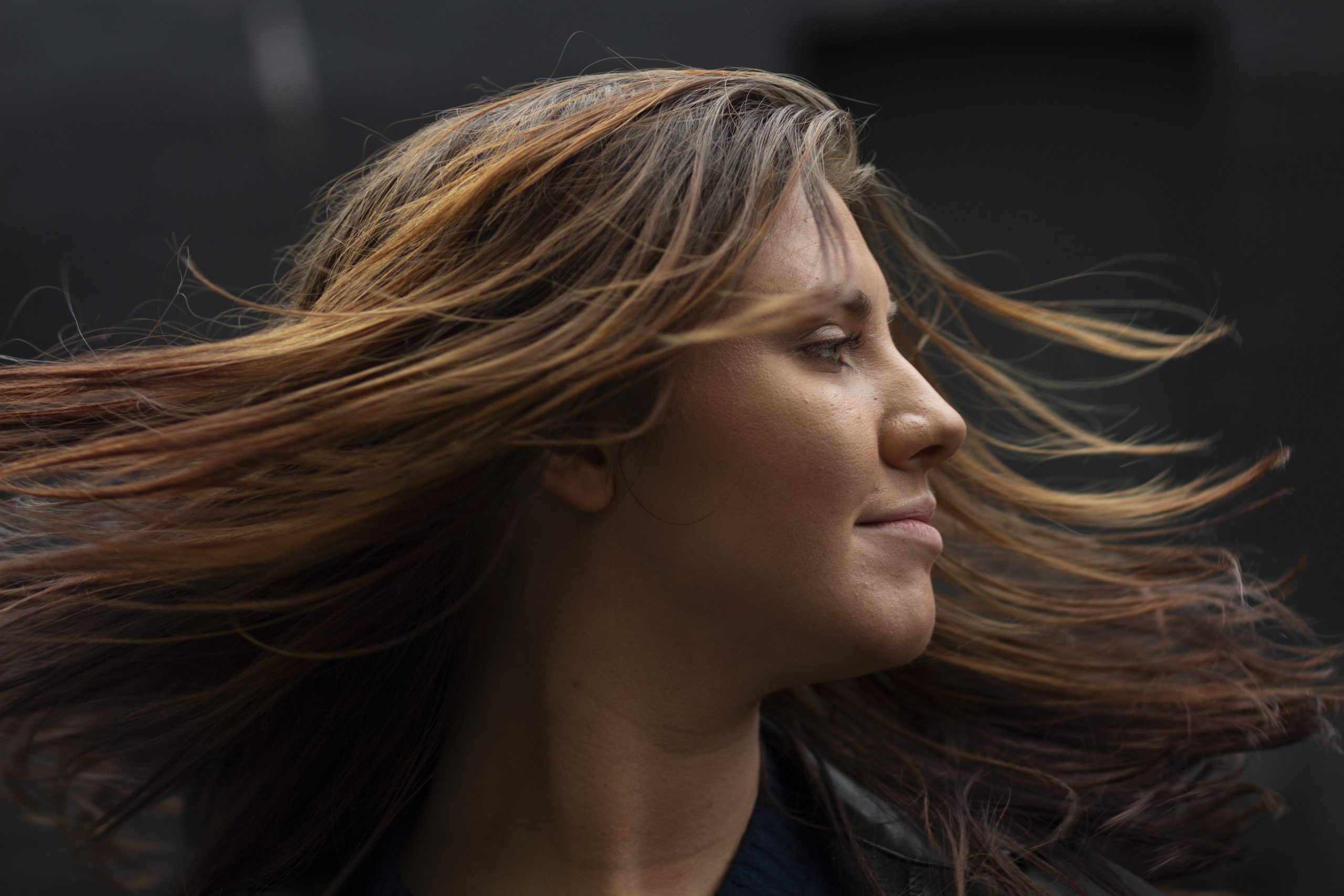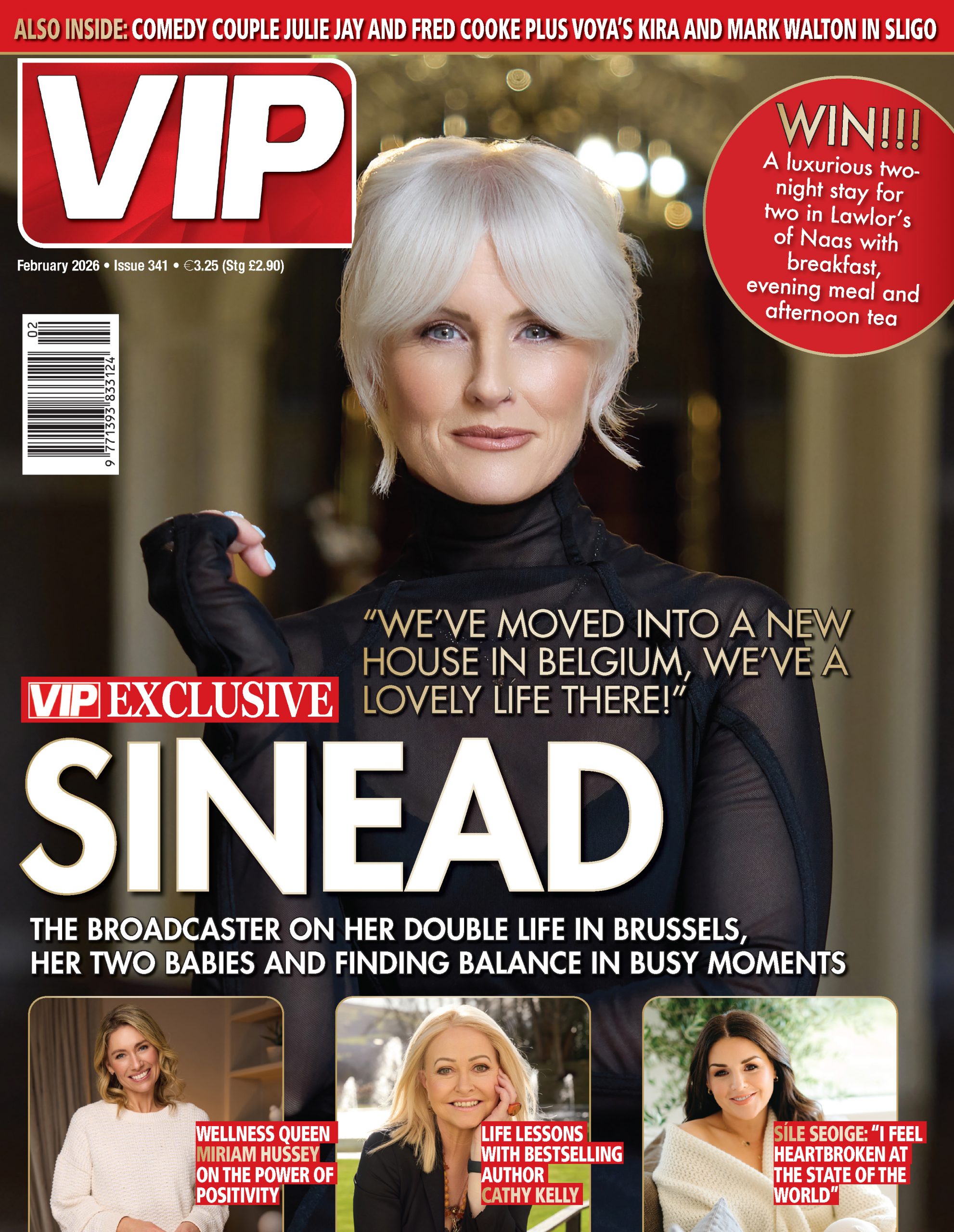
After surviving a violent assault by a serving soldier, who was convicted but walked free with a suspended sentence, Natasha O’Brien, a young Irish woman, refused to stay silent.
The Limerick woman worked tirelessly to appeal his sentence and in doing so inspired other survivors to search for justice.
On top of her fight for justice, she faced troll after troll who mounted online campaigns against her as she didn’t fit the “perfect victim” mould.
VIP Magazine sat down with Natasha ahead of her RTÉ documentary, NATASHA, which airs this week.
Hi Natasha, congratulations on your documentary, Natasha. Tell us how it all came about.
I found myself with a public platform after my attacker walked free. I was approached by a local newspaper, leaving the courthouse, and she just asked me, “Can I ask a few questions? And can I film this?” At the time, I didn’t really think much of this and lo and behold, it was everywhere the next day. Honestly, I thought I was talking to a wall and I ended up talking to a nation. Everything kind of jumpstarted after that. I was able to talk about really important issues. And speaking up is something that is very difficult for most people. It was difficult for me too, but I just felt like this is so important. I have been given this opportunity and not every victim can speak out. Not everyone wants to speak out, and sometimes when they do want to speak out they’re not given the opportunity to. My producer, Elaine Stenson, approached me. We went for a meeting that was supposed to be for an hour, and we ended up chatting for three or four hours. We had a great story but I said, “Guys, I am not your true crime dramatic story. This isn’t going to be like that, I’m not interested in doing that”. If we were going to make a film that gets an hour of prime-time television, I didn’t want to waste it. I’m telling a story that a lot of people already know, you know, and they were, like, no, absolutely. I wanted people to see there’s a person in that headline, but just a bit terrific. So we set out to document and showcase that complex human behind that headline. That they have a life and they have family and friends and loved ones and good days and bad days and all the in-betweens, and it’s not just black and white, you know? I’m really excited, but it was so hard to, um, keep it to myself for the last 10 months.
Natasha, it can’t be easy to relive your attack over and over again, especially publicly. What is it like for you?
I always try to bring new insights. That was 12 months ago, then the appeal came out, and so there was more media. This documentary is a real step forward for me because what happened to me is now actually behind me. It doesn’t define me anymore. You do just get so used to talking about it. It doesn’t even feel dramatic anymore. It’s just kind of you’re numb to the story. But it’s still exhausting to voice. This documentary is brand new and a massive step in a new direction now. I’m not ruminating, and I’m not focusing on the past and what happened. I’m trying to look forward. Obviously in the documentary, for the first 10 or 15 minutes I do share my backstory and what happened. But it’s behind me. I do obviously still talk about what happened. But I don’t want people to go, “You know, Natasha O’Brien? Oh, she’s the girl who was attacked by the soldier.” When you hear my name, that’s why you kind of that’s kind of immediately. But Natasha is a person. I’m not just what happened to me. I don’t want to just stay in one place, complaining and giving out.
Do you think the documentary has helped you move to the next chapter?
I wanted to use this opportunity to really shine a new light on what happened. I wanted to ask different questions and talk about different things. I suppose that’s what the film is about. It’s not a real kind of investigatory kind of thing at all, but it’s really a journey. And those highs and lows, and showing my vulnerability. I kind of had gotten used to the media. Even though it is challenging, when I was doing interviews I kind of put a mask on. I knew there were important points I had to make, and I was just focusing on that message and what I had to say. I had to perform and get to that goal. Now I get to reflect on all of it and I feel like the documentary was the opposite of that. The goal was to be the full vulnerable version of myself. I wanted people to see the actual journey I went through. It was really hard to take off all the bubble wrap that I had on myself. I didn’t want to be a broken record, so I did feel like I was moving forward. And that is really exciting.

You mentioned there about showing off your vulnerable side and taking off your mask. You really do that in the documentary. But being so open must be hard.
It was. My director, Kathleen Harris, directed Birdsong last year, she’s very gentle and sensitive, and she has no desensitivity about her. I think it was a big challenge for her to try to get me out of that zone of always having to deliver my points in the shortest amount of time. She actually helping me to express who I am behind that. It was a big challenge to try to strip down and forget about the cameras and forget about trying to achieve something. I was just trying to be me and that was just really hard. For the last year, I’ve been this kind of spokesperson and advocate. I felt like I had this important goal and purpose, but the goal of the documentary was vulnerability. It was so exhausting, constantly trying to be myself, I’m so used to kind of shutting off and being the presentable image for the media. Then to try to stop doing that and just roll and roll and roll, for the documentary, was tough. I really pushed myself out of my comfort zone. I invited the camera crew into really lots of different intimate moments in my life, I showed my relationship with my mam, with my dad, with my friends and even in with my counsellor.
Unfortunately, you’ve had to deal with some negative comments on social media. You haven’t been seen as the “perfect victim”. Surely that must be exhausting!
Absolutely! It was really frustrating to see all of that hate. It’s not even heartbreaking for myself, it is heartbreaking to know that this is the reality, and this is the judgment that victims receive. There’s an interesting scene in the documentary where I’m getting ready for the appeal in the Criminal Courts of Justice, I picked the ugliest grey jumper and the ugliest grey pants, and I didn’t wear any makeup because I really wanted my outside appearance to match how I felt inside. I was afraid if I looked anyway put together the judge wouldn’t take me seriously as a victim. Then there’s such contrast to it when I’m going into court, and I’m putting on red lipstick, and my mam was like, “Is that red a bit much for court?”, and I’m like, “Mam, I’m not gonna try to like, look like this perfect victim. I am a victim, and I’m trying to look like myself.” I didn’t need the judge to see me as this wounded victim, because I am a victim. The evidence is there. I don’t have to look like this idea of what a victim should look like. That’s all nonsense. A victim doesn’t and shouldn’t look like anything. A victim is a person, it’s a human being, and I myself, Natasha, I’m a victim. Of course, I’m suffering, I have trauma, but I’m not trying to broadcast it. I don’t want it to define me. The judge shouldn’t see me any different if I’m in an ugly grey jumper or wearing red lipstick. I hope all the people who love hate comments can watch my documentary and realise a victim doesn’t have to be a wallflower. A victim doesn’t have to be this damsel in distress. Victims come in all shapes and sizes.

Talk to us about the online hate.
The hate has been relentless, and it’s been frustrating. When RTÉ released the teaser trailer of the documentary, all I could see was relentless hate. There were comments like, “Oh, look at her. She must have been missing the spotlight. Oh, she’s back again. Oh, I’m gonna smash off my TV. What a waste of a TV license.” It’s just really like showing how badly society perceives victims. They want this sad, wounded little damsel in distress. No, I’m a whole woman, it’s just something that happened to me. There was one comment I always think of that said, “She’s a professional victim.” I am a victim, I am a person. That’s not the defining part of me. This documentary is showing that I am so much more than a victim. You’re damned if you do and damned if you don’t. So I’m going to damn well do it.
The documentary shows you going to the appeal the ruling after your attack. There must have been moments where you wanted to quit. How did you keep going?
Yes. I just felt I wasn’t doing this for me. I really felt like this isn’t just for Natasha. I think it would have been easier for me to give up if it had just been for me, but because I knew it was so much bigger than me. I’m constantly thankful for the incredible support from everyone. The support I’ve been receiving is just phenomenal, and it just keeps it keeps fueling me and keeps. Every message I get and every person that stops me on the street to talk to me. And all the journalists on the radio and on TV have been so supportive. It gives me that fire to keep going. I am so bad at cleaning my room. My room is always so messy, but If I’m ever at a friend’s house, I will literally start cleaning their room if they need it. I find it’s so easy to do something for someone else. It was the public perception and the message suspended sentences send.

Before we let you go, tell us, what’s next for Natasha?
I am just going to try to learn how to be again, remember to brush my teeth every morning, and remember to eat breakfast every day because these were just things that I had forgotten. And then getting to do this documentary, we had so many ideas. We had this massive plan and what we had kind of planned out for the documentary to look like. And that probably looks more like a series, because each, like, we kind of, had all these these areas to go into. So we’re in the early early stages of discussing another project. Obviously, I’m just gonna wait until this is out! I am looking at a degree in law with social justice and potentially next year because it’s just I find it really interesting. I know what I’m talking about with the experience that I’ve done through but I don’t have the education to know how to change anything.
NATASHA airs on RTÉ 1 on Wednesday, June 25th at 9.35pm




